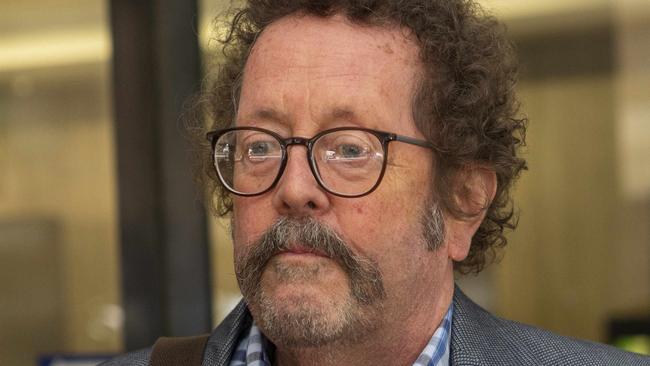National overhaul of welfare system needed or risk child safety, expert warns
Expert demands national overhaul of child protection systems amid dangers to the young and exposure to the criminal world.

An urgent national overhaul of child protection systems is needed to shine a light on why young people in state care are offending and the conditions they are forced to live under, according to a global expert on sex abuse and welfare.
University of South Australia adjunct research professor Chris Goddard has warned the nation’s child protection systems are contributing to high crime rates and the different approaches across the states and territories mean there can be a lack of information to examine what works best.
He said Australia had one of the least transparent child protection systems in the world.
“It is absolutely unbelievable that we don’t have a national approach to child protection. We need a national approach, we need national comparisons about what works – we have none of that in Australia,’’ Professor Goddard said.
The Victorian government is scrambling to deal with the effects of a spike in youth crime and is considering whether to tighten bail conditions for the young, whether to tighten legal definitions on burglaries and whether to provide more tracking devices for serious youth offenders.
Professor Goddard warned that many of the youth offenders had suffered from crimes like sex abuse and were part of the child protection systems, which are run by state governments.
He said he wasn’t defending any criminal behaviour but seeking to explain some of the causes behind why children and youths were offending at high rates.
“They are not just perpetrators, they so often have been victims, victims of a child protection system. Some of them are actually victims when they are doing these things,’’ he said.
Professor Goddard said for decades Australia had run multiple child protection systems across the states and territories, which had created layers of bureaucracy that did not necessarily lead to the best outcomes.
There was an urgent need for co-ordinated transparency to help explain where the weakest parts of the child protection system were.
He said sometimes young offenders in the state care system were being sexually offended against while under government care and were being exploited to steal by older members of the broader community.
“I’m not excusing their crimes. I’m seeking to understand how they got there,’’ he said.
Professor Goddard has a global reputation for fighting child sex abuse and has advocated heavily for victims of crime.
He said the key was to support children in state care and educate them on how to become their own “heroes”, adding: “Young people can be heroes.”
Victoria’s Commissioner for Children and Young People, Liana Buchanan, said: “It is well established that there is a strong association between out-of-home care and youth justice involvement, particularly for children in residential care.”
“This can result in the criminalisation of children and young people in care, and promote further and more serious offending.
Ms Buchanan said some children left care settings only to come into contact with criminals.
“As we have said in multiple inquiries, stemming the flow of children and young people into care, reducing unnecessary police engagement, and increasing the quality of care will reduce the risk that children and young people in care engage in criminal activity,’’ she said.
Victoria Legal Aid figures from 2019 to 2022 found that 42 per cent of its clients in residential care faced criminal charges within a year of placement.
Nearly a quarter were First Nations, more than quarter were aged 14 and under and more than half in residential care accrued criminal charges within two years of placement.
Coalition youth justice spokesman Brad Battin said there were links between state care and offending.
“The statistics would tell us that a lot of kids in state care end up in the justice system,’’ he said.
However, he said there was a need to create boundaries and consequences to attempt to limit the offending to better protect the community.
“There’s just no consequences,’’ he said.
Police Association Victoria secretary Wayne Gatt said bail served the purpose of ensuring people get to court and making the community safer. “When repeated cases in the youth justice space show us that both of those objectives are not being met, to the detriment of community safety, we must seriously question whether bail is being given too willingly,” he said.




To join the conversation, please log in. Don't have an account? Register
Join the conversation, you are commenting as Logout